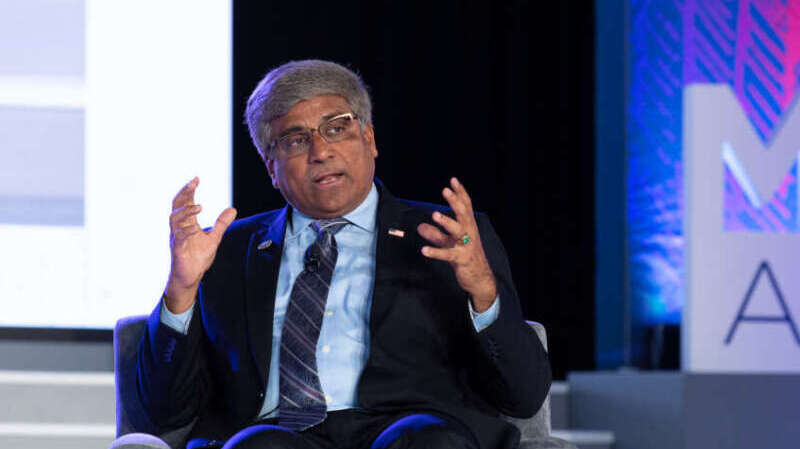
National Science Foundation (NSF) Director Sethuraman Panchanathan said on Friday that the United States must act now to invest in AI and quantum technologies in order to maintain its global tech advantage.
During an Aug. 2 event hosted by the Center for Strategic and International Studies, Panchanathan explained that the United States cannot have a repeat of what happened with semiconductors – the vast majority of which are now produced abroad.
“In semiconductors, we are trying to put on the Band-Aids for something that we lost a couple of decades ago,” Panchanathan said, referring to the CHIPS and Science Act.
“But we should never get ourselves in a position of having to put on any Band-Aid for AI or quantum or biotech or advanced manufacturing,” he continued. “We should never put ourselves in a position like this anymore, which means that we are to act now and not after the fact when we lose something.”
President Biden signed the CHIPS and Science Act into law in August 2022, making up to $52 billion of funding available to incentivize semiconductor makers to establish new manufacturing operations in the United States.
While Panchanathan said the CHIPS and Science Act is an “absolutely necessary” investment, he stressed that the United States must act now to significantly ramp up its investments in AI and quantum in order to “leapfrog” other nations.
“To realize the full scale of what we really intend to do as a nation, it requires significant investment,” Panchanathan said. “We need … appropriations because we cannot lose time.”
“This is something that NSF is intensely focused on, I call it intentionality with intensity,” he added. “But we need those resources, and done in a very timely way so that we can actually outcompete and outperform.”
Darío Gil – the new chair of the National Science Board (NSB), which serves as the governing board of NSF – agreed with Panchanathan, noting that even though the United States invented semiconductors, it “lost the leadership of that technology.”
“Now it’s an expensive proposition to recover that. In AI and quantum, that cannot happen,” Gil warned. “We’ve identified the nature of the problem, but we’re not solving the problem yet. So, this is where the element of authorizations becoming appropriations [is important].”
“The money has to be there, the ambition has to be there, and the accountability to deliver leadership needs to be there. And that’s what the moment calls for,” he added. “But if we miss this window in five years because the rate of this accelerates, we’re going to go back and the problem with chips is going to be a tiny problem compared to the problem we’re going to have if we miss this window … we have to act.”
